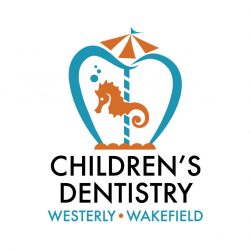Baby Teeth: Why do they matter?

Learn more about the importance of baby teeth from our very own Dr. Anna Capalbo at Children’s Dentistry of Westerly and Wakefield!
Why are baby teeth important?
Baby teeth (primary dentition) erupt within the first three years of a child’s life, and the first tooth erupts at the average age of 6 months. As soon as a tooth is in a child’s mouth, there is the potential to get a cavity. Many parents don’t know that cavities can begin as early as age 1. The American Academy of Pediatric Dentistry recommends taking your child to a pediatric dentist by his or her first birthday. Your pediatric dental team can provide recommendations for hygiene and feeding routines as well as a preventive regimen. Establishing a dental home for your child at a young age is a good habit for oral health to instill in your child. If tooth trauma or decay occurs as the child grows up, your family has established a relationship with a pediatric dental office that provides your child familiarity and comfort.
Why does this all matter if baby teeth fall out anyway?
Many of us have childhood memories of losing our baby teeth and looking forward to a visit from the tooth fairy – but we may not remember losing baby teeth in 6th grade! Parents are often surprised that there are two rounds of losing baby teeth – the eight primary incisors (front teeth) are lost between 5-8 years of age on average, and the remaining twelve baby teeth (4 baby canines and 8 baby molars) fall out on average between 10-12 years of age!
The baby molars come into a child’s mouth between 2-3 years of age but remain until they are 10-14 years of age. These molars retain a majority of a mouth’s daily plaque. The protective layer (the enamel) on baby teeth is thinner than on adult teeth – allowing a cavity to get larger faster than on adult teeth. One can see that children go through a period of time with both adult teeth and baby teeth in the mouth. If the baby teeth have untreated cavities, it increases the risk of cavities on the erupting adult teeth.
Did you know?
Tooth decay is actually the number one chronic infectious disease among children in the U.S.! Untreated cavities can be painful – tooth pain can make daily activities such as eating difficult and has been shown to distract children during school or after school activities!
Your pediatric dentist and his or her team welcome questions and concerns during your child’s visit – the more parents know about their child’s teeth (both baby and adult), the more they can reinforce healthy oral habits at home.

